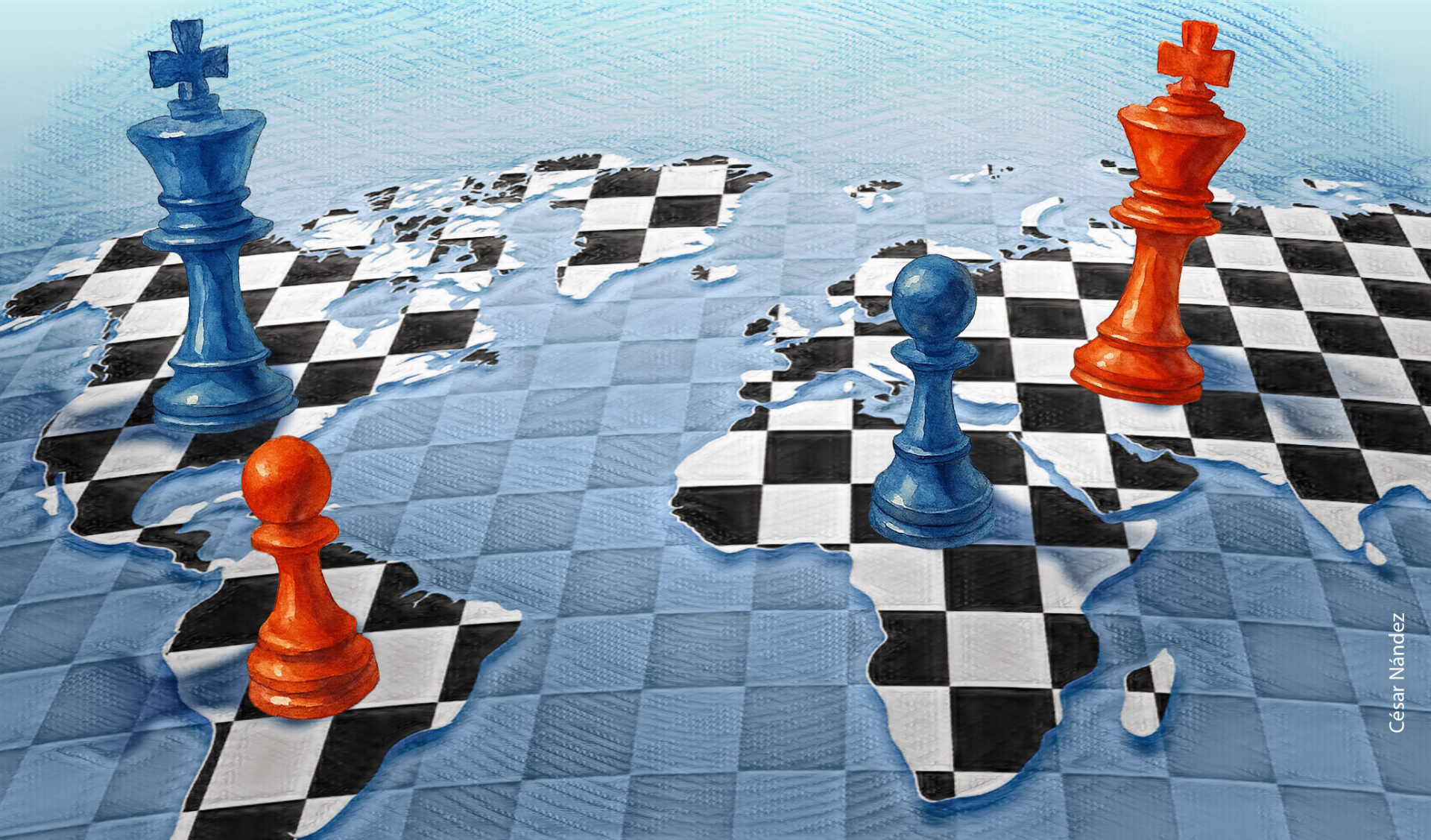After having been absent, almost ignored, for decades, the word geopolitics has experienced a resurgence in global popularity. An important factor behind the growing use of the term was Russia’s annexation of Crimea in 2014, after which headlines like “The Return of Geopolitics” became common.
Today, geopolitics is applied to everything—from analyses of social movements and corporations to studies on international and economic relations at a global level. The problem, however, is that the term geopolitics is often used with limited and biased perspectives.
Its limitation lies in the frequent use of geopolitics as a synonym for conflict or rivalry. From this angle, geopolitics is associated with war (military or trade), militarization, protectionism, or control over natural resources. The bias stems from the legacy of World War II, where geopolitics became equated with fascism, imperialism, nationalism, expansionism, or authoritarian military regimes. However, the origins of geopolitics tell a different story.
The term geopolitics did not originate from a major power. It was coined in 1899 by the Swedish political scientist Rudolf Kjellén (1864–1922), a professor at Uppsala University, Sweden. Kjellén was interested in global issues and wrote what may have been the first study on the world’s great powers. His most thorough exposition of the concept of geopolitics appears in his 1916 work The State as a Living Form. Kjellén sought to create a “theory of the state,” which he saw as playing a decisive role in human organization and community. For him, states exist in a hierarchical system in which they act to maximize their needs, with geopolitics representing the territorial dimension of a state’s actions within its geographical framework. However, according to Kjellén, this is just one among several dimensions of state action, along with ethnopolitics, economic politics, and sociopolitics, among others, such as biopolitics.
Other contemporary researchers also analyzed the relationship between space (territory) and power. One was British geographer Sir Halford Mackinder, who in 1904 presented his “Heartland Theory,” asserting that control of Eurasia is key to world domination. Others included French geographer Paul Vidal de la Blache, who brought geographical studies closer to historical and economic geography, and American Alfred Thayer Mahan, with his famous 1890 work The Influence of Sea Power upon History. None of these thinkers used the word geopolitics. Neither did Friedrich Ratzel, the German geographer who inspired Kjellén. Like Kjellén, he avoided categorical racial classifications and preferred to speak of “civilizations,” whose aspiration for optimal space—Lebensraum—was addressed through constant adaptation to their habitat.
The negative perception of geopolitics gained strength after World War II. In the 1930s, the concept was widely used by German military geographer Karl Haushofer and was partially adopted by Nazi strategic thought, especially through the concept of Lebensraum, tied to racial biology and supposed white civilizational superiority. Although Kjellén never took such an approach, geopolitics became associated with Nazism and imperialism. Kjellén’s studies were never recognized or addressed by later international politics experts like Hans Morgenthau or Kenneth Waltz. Morgenthau’s perspective became the dominant view, reinforcing a negative interpretation of geopolitics, which he regarded as deterministic and dangerous—suited to unscientific myths.
During the Cold War, some experts used a territorial perspective to conduct security-centered analyses. Two well-known examples are Henry Kissinger and Zbigniew Brzeziński. Neither of them cited Kjellén or his geopolitical approach. However, this was not the case in Latin America, where geopolitics developed from the 1920s and deepened with new perspectives focused on development and regional integration. The approach aimed to strengthen the state in its efforts to build weakened nation-states, achieve autonomy, and counter a subordinate position in the international system—deepening the connection between state-building, industrialization, and regionalism.
Since the 1990s, a new geopolitical discourse has emerged, known as critical geopolitics. This arose as a reaction to more traditional approaches in international relations, based on the idea that geopolitics is not a neutral or objective description of the world, but rather a socially constructed practice. Critical geopolitics—through scholars like John Agnew—questions colonial narratives and how the West is often portrayed as the norm. Its alternative is to focus on how language, images, and narratives are used to create geographic imaginaries, and how power and identity are shaped through geopolitical discourse.
It is a positive development that geopolitics has once again become an accepted concept for social and economic analysis. But it is important to keep in mind that, like other concepts in the social sciences, it is a polysemic word—meaning it can be approached from various perspectives, depending on the question and purpose. Two valuable lessons we can draw from geopolitics’ Swedish origin and Latin American contributions are: avoiding determinism, and considering geopolitics in complex relation to other analytical dimensions. Another is to view geopolitical units—such as states—as part of a global system in which the pursuit of autonomy and development can serve as a counterweight to imperialism and a path to overcoming peripheral subordination.
*For more on the origins of the concept of geopolitics, see the book: Territory, State and Nation: The Geopolitics of Rudolf Kjellén, by Ragnar Björk and Thomas Lundén.














